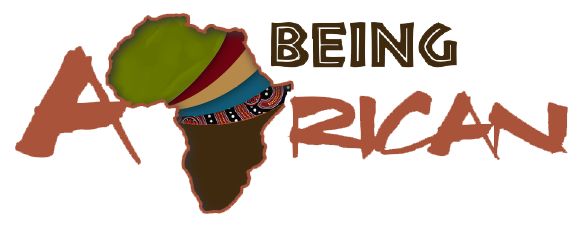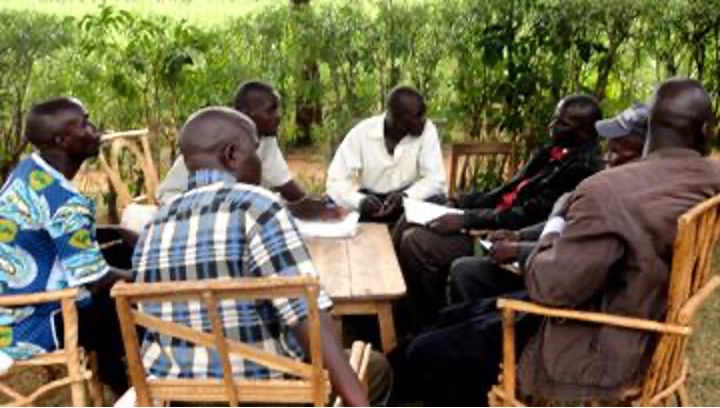
Luhya Frequently Asked Questions
Key roles explained
Bakhwe-The family
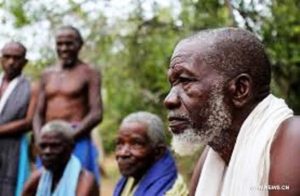
Who is Omukasa-Intermediary
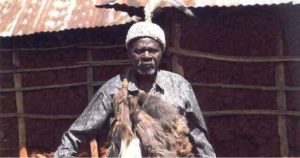
Omukasa is the go-between and spokesperson for the groom’s family.
He is responsible for easing tension and solving any problems that might arise during bride price negotiations.
Omukasa can be one of the groom’s uncles, older male friend or a respected member of the community from which the groom comes from.
What are the qualities of a good Omukasa
Good communication skills.
Good sense of humor
Good grasp of the culture
Mature, sensible and reliable.
What is Ekhwe-Dowry
In Luhya culture, Ekhwe was a must and it mostly consisted of a herd of cattles given to the bride’s family in appreciation for taking care of the bride.
What is Bubweya-Negotiation between the families
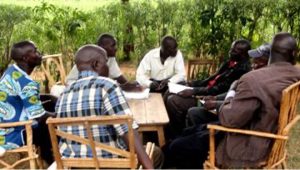
In Luhya marriage, The Ekhwe is mainly the men’s role.
Those who partake in these negotiations include the groom’s father, uncles, and brothers who had been circumcised and therefore considered men.
The family appoints a Bamweya (spokesperson), who leads the negotiations on behalf of the groom’s family.
The Bamweya and the Omukasa are the ones who lead the negotiations between the families
Who is Bakoko-Aunts
It was the duty of the Bakoko to prepare the bride for marriage
The Bakoko would teach them all they needed to know, particularly what would be expected from them when they became wives.
They also helped in the preparation of meals during the dowry negotiation period.
What is Bukhwe-An explanation of the Bukusu marriage process
Bukhwe is a process that involves the groom known as Bakhwe visiting the bride’s family led by Omukasa to ask for her hand in marriage on behalf of their son.
The proceedings involve a lot of steps that are to be followed.
The man’s family may start this by sending Omuksa to the woman’s family to express interest in having their daughter marry the man. The courtship phase starts once both families give their approval.
What is Ekhwe?
Ekhwe is a tradition or custom where the bridegroom’s family pays cattle or cash to the bride’s family.
It is a token of appreciation from the groom’s family for the bride.
It is usually the groom’s responsibility
It is usually paid in form of cattle’s
It serves to build a relationship between the marrying families.
It serves as a thanksgiving to the bride’s mother for giving birth and nurturing her daughter until she reaches the marriage phase.
Marriage ceremony (Okhulikha)
After the dowry negotiations are successfully concluded, the traditional wedding ceremony takes place.
This ceremony is known as “Okhulikha” in Luhya culture. It is a festive occasion involving family members, relatives, and community members.
The ceremony usually takes place at the bride’s family home or in a designated community space.
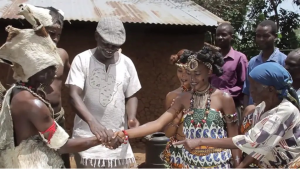
The bride wears esukuti,which is made from sisal fibres.
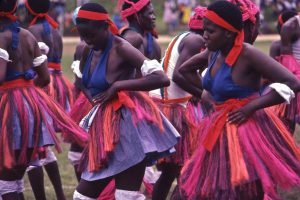
During the ceremony, traditional brew known as busaa is consumed, meat is roasted and presents are given to the newlywed couple.
The presents include traditional baskets known as shimwero which will be used to carry and store food at the homestead
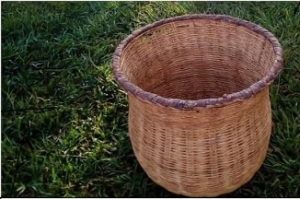 | 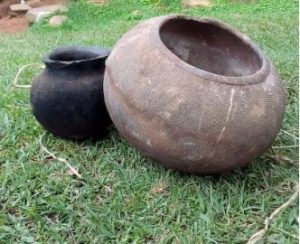 |
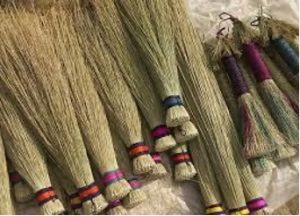 |
Conclusion
Marriage, in the Luhya culture, is one of the most sacred and adhered to rituals. The community had one of the most amazing marriage cultures and rituals, then with the changing times and the coming of Europeans distorted that.
The woman was the one to take care of her home, do all the domestic chores, and ensure the continuity of the lineage of the family in which she was married.
Traditional marriage rituals have been slowly replaced by the modern ways. Nowadays the majority of the people conform to the modern ways of marriage and have abandoned the traditional way. This is slowly distorting the culture and therefore overlooking some crucial aspects of the cultural process which were crucial in the longevity of the marriage.
